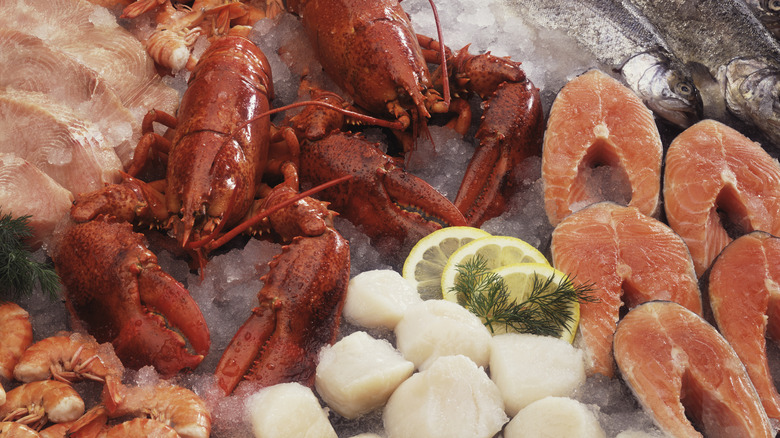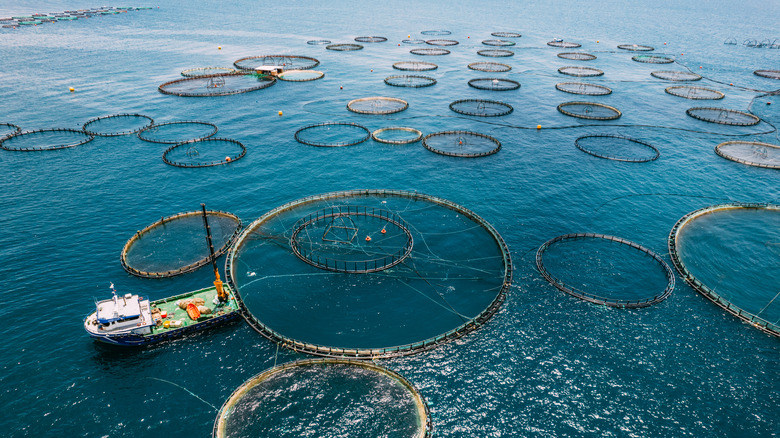Why Costco's Fish Selection Feels So Limited
When someone mentions Costco, many of us think of the more bizarre things you can buy there – gigantic tubs of Nutella, huge wheels of cheese, and hunks of meat large enough to feed an entire army. We think of bulk goods, and a wide variety of them.
However, as regular Costco shoppers might have noticed, the chain's selection of fresh fish is, well, sparse at best. Costco's seafood department includes only about a dozen options, and just about a quarter of those are actually fish. There's a good reason for that: Back in 2011, Costco extended its sustainability policy to seafood, deciding to no longer sell endangered species like bluefin tuna, swordfish, and Atlantic cod, among others.
Per Costco's Sustainable Development Goals, the chain now sources its seafood only "from wild fisheries or farmed aquaculture in ways that help meet current demand without compromising the availability of scarce resources for future generations." In other words, if Costco can't source seafood in a World Wildlife Fund-approved manner, the chain won't sell it.
Where does Costco get its seafood?
As mentioned, Costco primarily sources its seafood through sustainable wholesalers and fisheries, doing its part to avoid harming already endangered species. For instance, Costco's ahi tuna and Alaskan cod are certified by the Marine Stewardship Council, with many of the chain's other seafood options labeled as being sustainably farmed or wild-caught.
That being said, as of 2015, GreenPeace ranked Costco at a 5.34 out of 10 for sustainable seafood, and conservation group SeaChoice noted in 2020 that Costco had still only "partially" met its sustainability goals. As of 2023, in fact, Costco continues to sell: Chilean sea bass despite the species being overfished, wild orange roughy despite the controversy regarding its status as sustainable, and Atlantic cod despite agreeing in 2011 to cease doing so.
For the average shopper, it's hard to tell if your seafood is actually sustainable. But while it would be nice to have our seafood labeled as such (let alone, have that label be trustworthy), we're ultimately left to our own devices. All we can do, at the end of the day, is research the products we're buying and do our best to make responsible choices.

